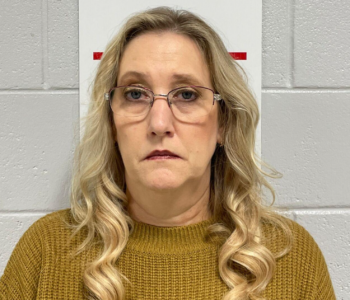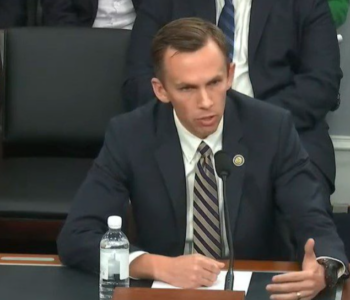 News
News
Mississippi reaches $55.5M settlement with Medicaid contractor Centene over…
JACKSON • Mississippi has reached a $55.5 million settlement deal with health care giant Centene following an investigation into whether the state’s largest Medicaid contractor was overcharging taxpayers for pharmacy benefits.
A joint announcement from Attorney General Lynn Fitch and State Auditor Shad White said the out-of-court arrangement, finalized Saturday, was one of the largest civil settlements following an auditor investigation in Mississippi history.
It came following two years of investigation into whether Centene — the nation’s 24th-largest company — had been inflating its bills to the Division of Medicaid, which covers some of the state’s most vulnerable and needy residents. Centene did not admit fault under the agreement.
“I do not care how large or powerful the company is, Mississippi taxpayers deserve to get what they paid for when the state spends money on prescription drugs, and we will stand up for the taxpayers if they do not get a square deal,” White said in a statement.
Fitch said she wants to ensure Mississippians are “not being cheated by Centene or anyone else. This settlement makes clear that the days of hiding behind a convoluted flow of money and numbers are over.”
In Mississippi’s Medicaid managed care system, Centene subsidiary Magnolia Health and two other contractors oversee health insurance benefits for about 485,000 poor adults and children, disabled people, pregnant women, and others. The Division of Medicaid pays the companies a set rate per patient.
The Mississippi investigation was focused on one portion of the state’s Medicaid managed care system under Centene — pharmacy benefit managers. These subcontractors, known as PBMs, serve as middlemen between insurance companies, drugmakers and pharmacies. They manage drug benefits, negotiate drug prices and reimburse pharmacists.
Mississippi started investigating Centene in 2019, when White hired a specialist law firm from Ridgeland to scrutinize the corporation’s pharmacy benefit system under the Division of Medicaid. Fitch’s office earlier this year confirmed it was also probing the company over the pharmacy benefit issue with the help of the same firm, Liston & Deas. The firm is set to be paid about $2.8 million of the settlement money, according to its agreement with the state.
The AG’s office had said its investigation was similar to a recently-filed lawsuit in Ohio alleging the company had bilked that state out of tens of millions of dollars.
Ohio on Monday announced it had also reached a settlement with Centene, for $88.3 million.
In a news release, Centene noted it did not admit fault by agreeing to the settlements. It said the claims by Mississippi and Ohio were focused on pharmacy benefit services provided by one of its subsidiary, Envolve Pharmacy Solutions. Centene said in 2019 it had “proactively restructured” its pharmacy benefit business to create “a more transparent relationship” with health plans. Envolve will no longer operate as a full PBM, it said, instead only providing administrative services.
“We respect the deep and critically important relationships we have with our state partners,” Brent Layton, Centene’s president of Health Plans, Markets and Products, said in a statement. “These agreements reflect the significance we place on addressing their concerns and our ongoing commitment to making the delivery of healthcare local, simple and transparent.”
The St. Louis-based company, which brought in revenues topping $111 billion last year, said it is in discussions to settle with other states that have also been investigating its pharmacy benefit practices. It said it has set aside $1.1 billion to deal with the issue, on top of the payments to Ohio and Mississippi.
Kansas, Arkansas, Georgia, Oklahoma, New Mexico, Washington, D.C. and possibly other states are reportedly also considering litigation against Centene, according to the Ohio Capital Journal and The Wall Street Journal.
The Daily Journal first reported the existence of a probe by Mississippi agencies into Centene. Monday’s announcement by White and Fitch noted the Mississippi investigation had been reviewing invoices from Envolve.
“Contracts required payments be capped by certain industry-standard prices, and the PBM (Envolve) was charging Medicaid more than the allowed price cap,” the statement from White and Fitch said.
In addition to the $55.5 million payment, Centene must “provide full transparency related to the adjudication and payment of all pharmacy benefit claims” going forward with the state, according to the settlement.
The Division of Medicaid recently agreed to extend Centene’s contract into 2022. An agency spokesman declined to comment Monday and referred questions to the AG’s office.
White declined to say whether Medicaid should have extended Centene, noting it was a “judgment call,” and that the agency had been kept in the loop about the details of his office’s probe. The auditor added he believes there are enough protections in place to ensure Centene does not overbill the state going forward.
Managing pharmacy benefits is a lucrative business. Magnolia paid its PBMs more than $1.1 billion from 2016 to 2020, sometimes as much as $25 million a month, according to figures provided by the Division of Medicaid. Taxpayers ultimately picked up the tab by reimbursing Magnolia.
Ohio was the furthest along in pursuing Centene, having already filed a lawsuit earlier this year. That suit — which officials said was similar to Mississippi’s inquiry — had alleged three areas of wrongdoing: requesting reimbursements for amounts already paid by the state, failing to disclose the true cost of pharmacy services, and artificially inflating drug dispensing fees.
Court papers alleged Centene’s Ohio subsidiary, Buckeye Health Plan, “knowingly provided inflated pharmacy cost information to (Ohio’s Medicaid agency) as part of a deceptive scheme designed to maximize the profitability of its parent company, Centene, at the expense of the Ohio Medicaid Program and the citizens of the State of Ohio.”
In Mississippi, White said his office noticed Ohio’s initial findings about PBMs in 2018, and wanted to do a similar analysis of the companies in Mississippi. That led to contracting with Liston & Deas, he said, and by last year, officials were confident that the state had been overpaying for pharmacy benefits, and Centene would need to pay it back.









